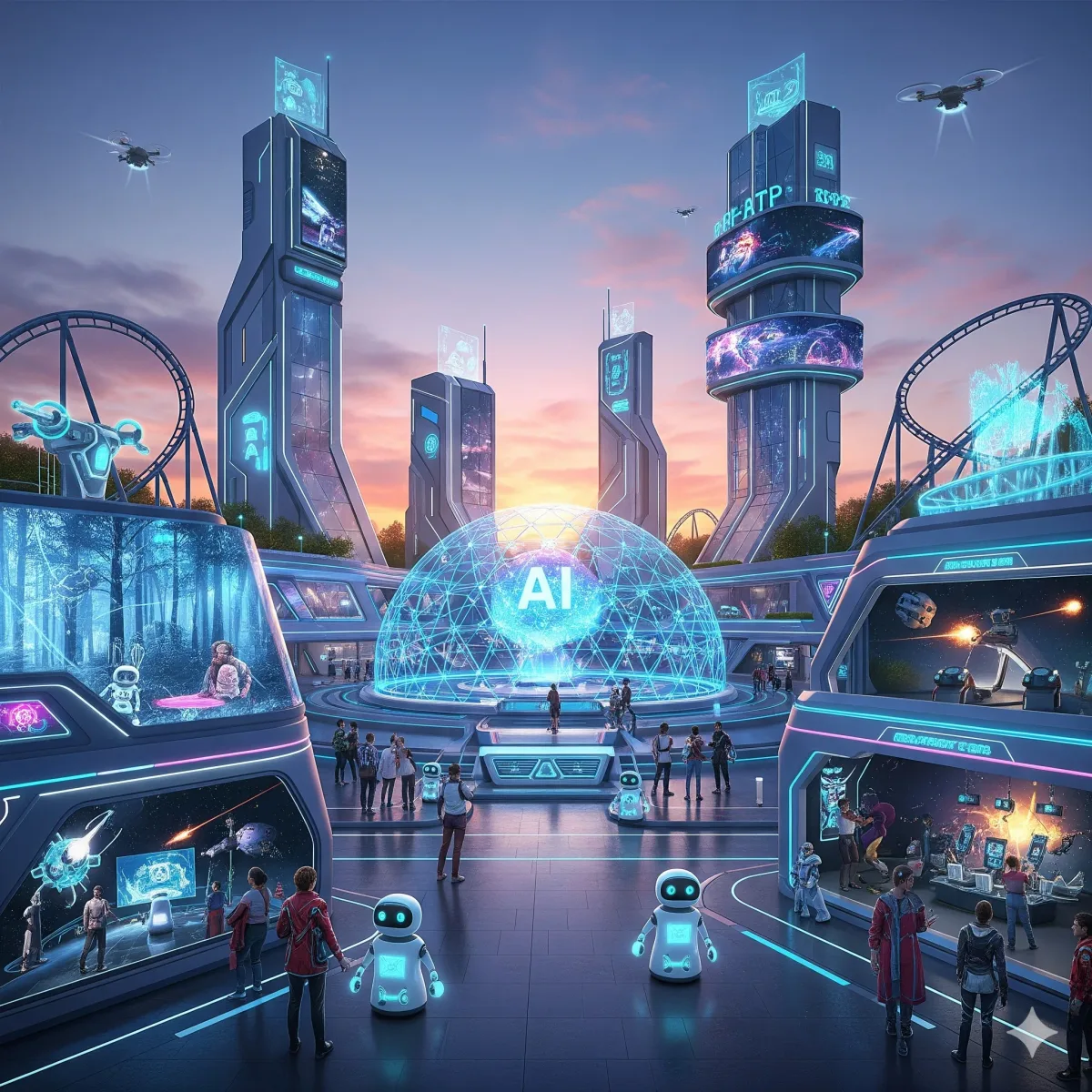The magic of a theme park lies in creating unforgettable experiences. But behind the scenes, operators face a relentless operational challenge: managing immense crowds, maximising guest spending, and ensuring every part of the park runs flawlessly. The margin between a good day and a great one - both for the guest and the balance sheet - is incredibly fine.
For years, the industry has relied on historical data and educated guesswork. But in today’s digital world, that’s no longer enough. The conversation has moved on. We believe Artificial Intelligence (AI) is no longer a futuristic concept; it is the most powerful tool available to theme park operators to drive tangible profitability and engineer a world-class digital experience. Not in a made-up fantasy way, but in targeted use of data, machine learning, and highly customised change points.
This isn’t about replacing the human touch. It’s about augmenting it with data-driven intelligence to make smarter, faster, and more profitable decisions.
From Personalisation to Profit
A key driver of profitability is secondary spend, including food, merchandise, and experience upgrades. The traditional approach of generic, park-wide offers is inefficient. AI allows for hyper-personalisation at a scale that was previously impossible.
From our experience architecting sophisticated e-commerce platforms and loyalty programmes for major cinema chains, we learned a critical lesson: understanding customer behaviour in real-time is the key to unlocking revenue. We engineered systems that could dynamically offer a premium seat upgrade or a specific food and beverage combo based on the film genre, time of day, and a customer’s booking history or key life events.
Imagine applying that logic to a theme park. An AI-powered system, drawing on a single customer view, could:
- Analyse a family’s progress through the park via the mobile app and send a timely notification for a discounted meal deal at a nearby, under-utilised restaurant.
- Identify a guest who has been on several thrill rides and offer them a paid-for fast-pass for the park’s biggest rollercoaster when the queue time peaks.
- Promote specific merchandise in the app based on the rides a guest has just experienced.
This isn’t intrusive marketing; it’s a value-added service that feels personal and helpful, directly enhancing the guest experience while simultaneously driving revenue.
The AI-Powered Operational Brain

Beyond direct revenue, AI offers enormous potential for operational efficiency, which translates directly to the bottom line. A modern theme park is a complex digital ecosystem that generates vast amounts of data, including ticketing turnstiles, app usage, ride sensors, and point-of-sale systems.
The right strategic approach can harness this data to power predictive models that:
- Optimise Guest Flow: By analysing real-time movement, AI can predict crowd build-up and dynamically update digital signage. Push notifications can be distributed via the park’s five-star mobile application to guide guests towards less congested areas or attractions with shorter queues.
- Enable Dynamic Staffing: Instead of relying on rigid rotas, AI can forecast demand at food and beverage outlets or retail stores throughout the day, allowing for the smart deployment of staff to meet peaks and reduce costs during quieter periods.
- Implement Predictive Maintenance: The cost of an unexpected ride closure, including both lost revenue and guest satisfaction, is substantial. AI can analyse sensor data to predict component failure before it happens, allowing maintenance to be scheduled overnight. This ensures maximum uptime on your most valuable assets.
Making It Real: The Delivery Challenge
The promise of AI is immense, but its successful implementation is fundamentally an engineering challenge. It demands a resilient and scalable digital platform that can establish a unified data source through the seamless integration of both legacy ticketing systems and contemporary mobile applications.
This is where a delivery-focused methodology becomes critical. The goal is to mitigate risk and ensure that ambitious projects are delivered on time and on budget. Building this foundation is the difference between an AI strategy that remains a PowerPoint slide and one that becomes a powerful, revenue-generating asset.
The question for operators is no longer if they should be investing in AI, but how they can architect a digital ecosystem that unlocks its full potential. The brands that get this right will not only see a healthier bottom line but will also create the seamless, personalised, and magical experiences that keep guests coming back year after year.

